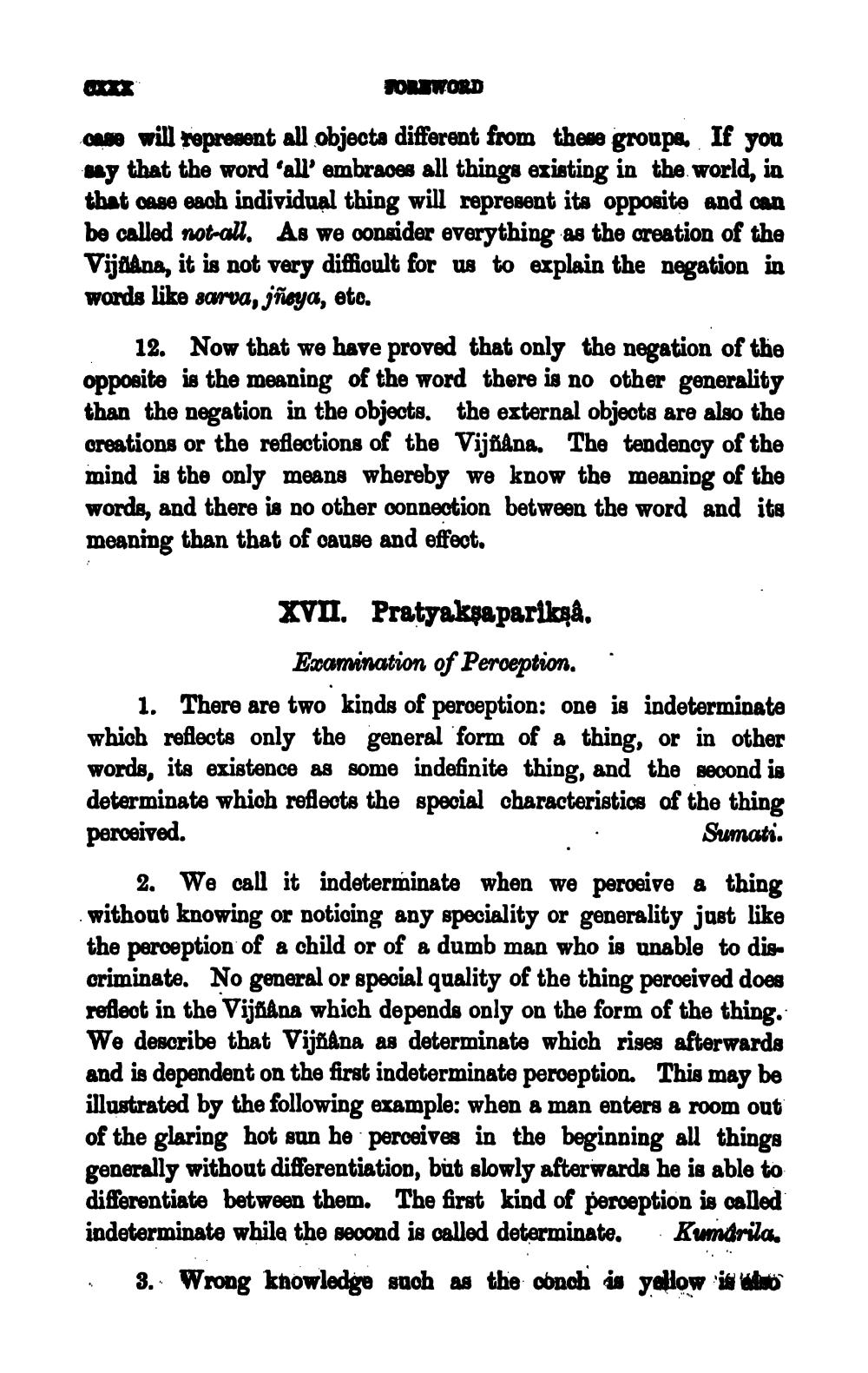________________
FOREWORD
case will represent all objecte different from these groupe. If you say that the word 'all' embraces all things existing in the world, in that case each individual thing will represent its opposite and can be called not-all. As we consider everything as the creation of the Vijdana, it is not very difficult for us to explain the negation in words like sarva, jñoya, etc.
12. Now that we have proved that only the negation of the opposite is the meaning of the word there is no other generality than the negation in the objects. the external objects are also the creations or the reflections of the Vijfâna. The tendency of the mind is the only means whereby we know the meaning of the words, and there is no other connection between the word and its meaning than that of cause and effect.
XVI. Pratyakaparikgå.
Examination of Perception... 1. There are two kinds of peroeption: one is indeterminate which reflects only the general form of a thing, or in other words, its existence as some indefinite thing, and the second is determinate which reflects the special characteristics of the thing perceived.
Sumati. 2. We call it indeterminate when we perceive a thing without knowing or potioing any speciality or generality just like the perception of a child or of a dumb man who is unable to discriminate. No general or special quality of the thing perceived does reflect in the Vijfkna which depends only on the form of the thing. We describe that Vijnana as determinate which rises afterwards and is dependent on the first indeterminate perception. This may be illustrated by the following example: when a man enters a room outi of the glaring hot san he perceives in the beginning all things generally without differentiation, but slowly afterwards he is able to differentiate between them. The first kind of perception is called indeterminate while the second is called determinate. Kumarilah
3. Wrong knowledge such as the conch is yellow it dido




